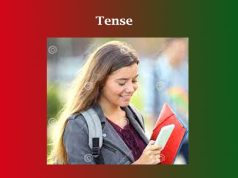Classification of Sentences According to Purpose
Classification of Sentences According to Purpose
Classification of Sentences According to Purpose
Introduction
Sentences play diverse roles in communication, each categorized by its distinct purpose. English sentences are broadly classified into five types based on their intended function: declarative, interrogative, imperative, exclamatory, and optative sentences. Understanding these types is key to expressing ideas, asking questions, giving commands, emphasizing emotions, or expressing desires effectively.
Declarative Sentences (or Assertive Sentences)
Declarative sentences make statements, convey information, or express opinions. They end with a period and are the most common type. For instance:
“The sun sets in the west.”
“She enjoys playing the piano.”
“I am going to the store.”
Interrogative Sentences
Interrogative sentences are used to ask questions, seek information, or request clarification. They end with a question mark and prompt a response. Examples include:
“Where are you going?”
“How does this machine work?”
“Would you like some tea?”
Imperative Sentences
Imperative sentences give commands, instructions, or requests. Often, the subject (‘you’) is implied. They can end with either a period or an exclamation mark. For example:
“Please close the window.”
“Pass me the salt, please.”
“Don’t be late for the meeting.”
Exclamatory Sentences
Exclamatory sentences express strong emotions like surprise, excitement, joy, or anger. They end with an exclamation mark and aim to emphasize feelings. Some examples include:
“What a beautiful sight!”
“Wow, that was amazing!”
“How dare you!”
Optative Sentences
Optative sentences express wishes, hopes, or desires. They often begin with “may” or “let” and convey a wish for something to happen. For example:
“May you have a wonderful journey!”
“Let there be peace in the world.”
“May all your dreams come true!”
Conclusion
Recognizing the distinct purposes of declarative, interrogative, imperative, exclamatory, and optative sentences is crucial for effective communication. Declarative sentences convey information, interrogative sentences ask questions, imperative sentences give commands or instructions, exclamatory sentences emphasize strong emotions, and optative sentences express wishes or desires. Proficiency in using these sentence types empowers individuals to communicate with precision, clarity, and impact, allowing them to express thoughts, emotions, and intentions appropriately across various contexts. 0 0 0.
Classification of Sentences According to Purpose
You May Like:







